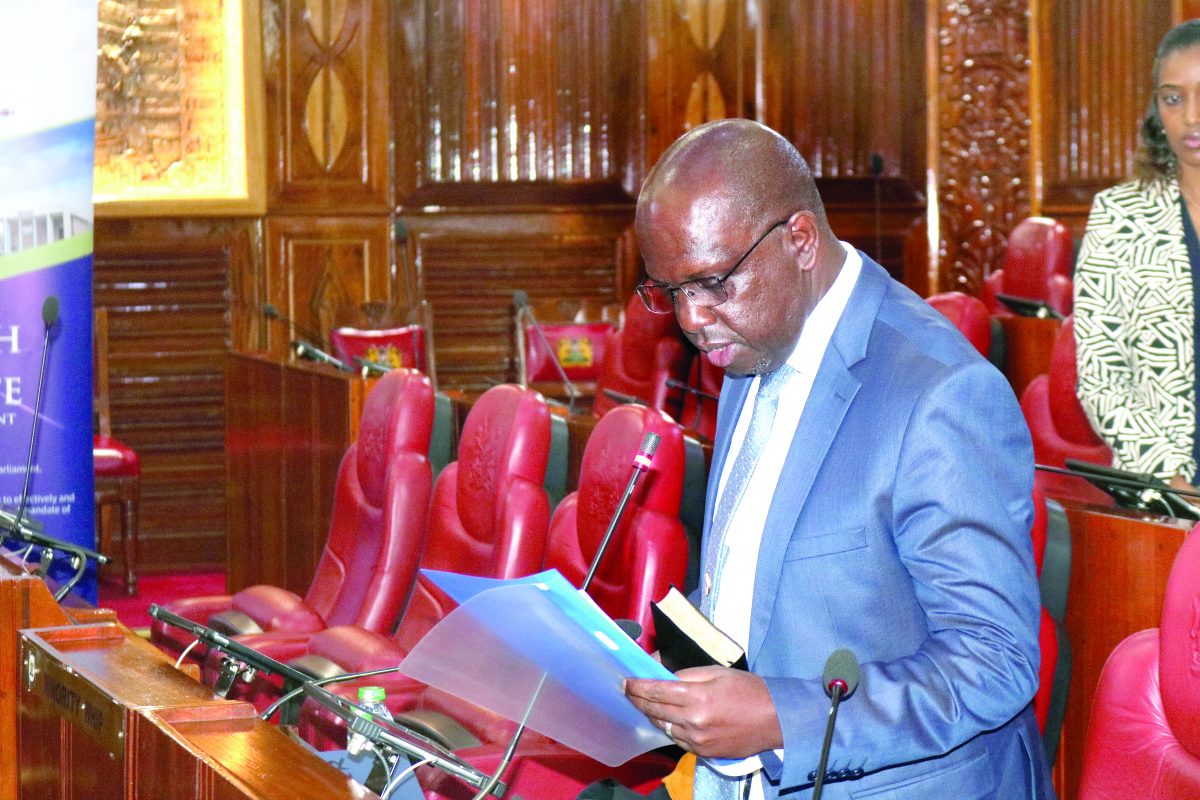Kiraitu linked to high cost of power
By Rawlings, April 18, 2023A House committee investigating the high cost of electricity in the country yesterday associated a former Energy Cabinet Secretary and Principal Secretaries to the saga.
The Senate Energy Committee chaired by Nyeri lawmaker Wahome Wamatinga questioned how the former powerful Ministry of Energy officials came to own a company listed as one of the shareholders of Gulf Power.
Gulf Power, alongside other Independent Power Producers (IPPs), is accused of charging exorbitant electricity costs, a move that is responsible for the high cost of living.
The committee was shocked that Gulf Power has foreign directors and shareholders from overseas, including Mauritius nationals.
However, Gulf Power General Manager Norman Wanderi failed to disclose the beneficial owners of the overseas companies listed as shareholders of the firm.
“I have listened and I would say that you have given us half-baked information. I feel like it is a deliberate measure, especially to the fact that Gulf Power is one of those companies that are owned by who and who in this country,” Wamatinga said.
The Nyeri lawmaker dropped the names of former Energy Minister Kiraitu Murungi and former Principal Secretaries Joseph Njoroge and Patrick Nyoike. Before his appointment as the Energy PS, Njoroge was the Managing Director of Kenya Power which entered into a contract with Gulf Power to sell power to KPLC.
Crucial information
“Could you be aware that former PS Nyoike owns part of it. Former PS Njoroge owns part of it and former CS Kiraitu owns part of it? Could you be in a position to know?” Wamatinga posed.
However, Wanderi maintained that the allegations were false but could not provide identities of the owners. “I do not think that information is factual. I believe that that information is not current,” he insisted.
Senators criticised Wanderi for concealing the crucial information, accusing him of being economical with the truth.
The lawmakers questioned how one of the former PSs came to own shares in the firm yet a power purchase agreement was signed during his tenure as the Managing Director of Kenya Power.
Wanderi said that Gallant Power Ltd, a firm registered in Mauritius, was one of the shareholders of Gulf Power Limited while Philip William Dyk from the US is listed as a Director alongside other Kenyans.
Double price
Besides the overseas shareholders, Kenya Power Pension Scheme is also listed as a shareholder and director of Gulf Power Limited.Gulf Power, which has signed a 20-year contract with Kenya Power, is said to be selling its power at double the price offered by other IPPs, leading to high cost of electricity. Nairobi Senator Edwin Sifuna sought to know from Wanderi the owners of Gallant Power Limited.
“Who are the owners of the Gallant Power Limited?” posed Sifuna. However, Wanderi could not disclose the beneficial owners.
Wanderi’s failure to provide the names elicited outrage from the lawmaker, who accused the management of concealing information to protect influential people owing the company.
Wanderi was also scolded for appearing before the panel instead of his boss, Managing Director Francis Njogu whom the committee had directly invited.
They accused the firm of sending “junior officers led by the general managers, who do not have a grasp of the company,” saying it was part of the wider plan to conceal information.
Oburu Oginga (Siaya), citing a presidential task force report that reviews power purchase agreements in 2018, said that Gulf Power was selling its power at twice the cost.
“The observation we have from a report by the presidential task force which analysed to the PPAs states that in Finacia Years 2018, 2010 and 2020, this company was the highest, in fact, it was double in the charges they were making in terms of electricity that of other IPPs,” he said.
“So, can they explain this kind of skewed agreement where they are given more powers to charge more than 50 per cent,” he added.
Oburu questioned why the contract signed with Kenya does not have a termination clause despite it being exploitative.
